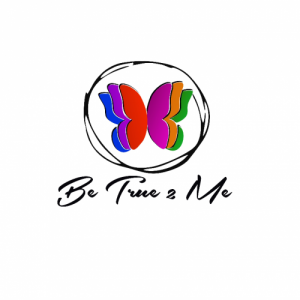Let’s talk Pronouns

pronoun
/ˈprəʊnaʊn/
noun
plural noun: pronouns
a word that can function as a noun phrase used by itself and that refers either to the participants in the discourse (e.g. I, you ) or to someone or something mentioned elsewhere in the discourse (e.g. she, it, this ).
The term pronoun covers many words, some of which do not fall easily under the generic description of words that replace nouns. There are several different kinds of pronouns, including:
- Personal pronouns (e.g., he, they)
- Demonstrative pronouns (e.g., this, these)
- Interrogative pronouns (e.g., which, who)
- Indefinite pronouns (e.g., none, several)
- Possessive pronouns (e.g., his, your)
- Reciprocal pronouns (e.g., each other, one another)
- Relative pronouns (e.g., which, where)
- Reflexive pronouns (e.g., itself, himself)
- Intensive pronouns (e.g., itself, himself)
… and that brings us to the end of the English lesson, because pronouns, specifically Personal pronouns nawadays are exhaustive, especially when trying to use them correctly.
We believe that it is important to give people the opportunity to state the pronoun that is correct to use when referring to them, as the incorrect use of pronouns can cause dysphoria. Mistaking or assuming people’s pronouns without asking first, mistakes their gender and sends a harmful message. Using someone’s correct gender pronouns is one of the most basic ways to show your respect for their identity.
She/her/hers and he/him/his are a few commonly used pronouns. Some people call these “female/feminine” and “male/masculine” pronouns, but many avoid these labels because not everyone who uses “he” feels like a “male” or “masculine“.
There are also lots of gender-neutral pronouns in use. Here are a few you might hear:
- They/them/theirs (Shea ate their food because they were hungry.)
This is a pretty common gender-neutral pronoun and it can be used in the singular. In fact, “they” was voted as the Word of the Year in 2015. - Ze/hir/hir (Tyler ate hir food because ze was hungry.)
Ze is pronounced like “zee” can also be spelled zie or xe, and replaces she/he/they. Hir is pronounced like “here” and replaces her/hers/him/his/they/theirs. - Just my name please! (Ash ate Ash’s food because Ash was hungry)
Some people prefer not to use pronouns at all, using their name as a pronoun instead.
Never refer to a person as “it” or “he-she“.
These are offensive slurs used against trans and gender non-conforming individuals.
Make a habit of introducing yourself with your pronouns, not just in LGBTQIA-specific situations. This makes sharing pronouns routine, instead of singling out certain people or communities. Try to avoid using the phrases “preferred pronouns” or “preferred name” as these suggest an element of flexibility or that someone’s identity is less than valid. Someone’s name and pronouns are not suggestions and are not preferred over something else. They are inherent to who we are.
(This is NOT an exhaustive list. Any combination is possible!)
| ___ laughed. | Ask ____! | That’s ____ pen. | That pen’s ____. | Did ___ enjoy _____? |
|---|---|---|---|---|
| co | co | cos | cos | coself |
| en | en | ens | ens | enself |
| ey | em | eir | eirs | emself |
| he | him | his | his | himself |
| she | her | her | hers | herself |
| they | them | their | theirs | themself |
| xie | hir (“here”) | hir | hirs | hirself |
| yo | yo | yos | yos | yoself |
| zeve | zirvis | zirver | zirsver | zirselfverself |
Keep in mind some people may use certain pronouns in some contexts and not in others due to a variety of factors, including safety. For example, a person may be openly transgender or trans* at work but not at home with their family. Some people use different names and different pronouns depending on the context. It can be helpful to clarify in what situations someone uses certain pronouns. Remember it is up to each person how and when they choose to share part of their identity with others.
Make a habit of introducing yourself with your pronouns, not just in LGBTQIA-specific situations. This makes sharing pronouns routine, instead of singling out certain people or communities.
Pronouns sourced from the USDavis LGBTQIA Resource Center
Other material sourced from: WikiPedia, UCSF, UWMilwaukee
binary feminine LGBTQ LGBTQ+ masculine non-binary pronoun pronouns trans transgender